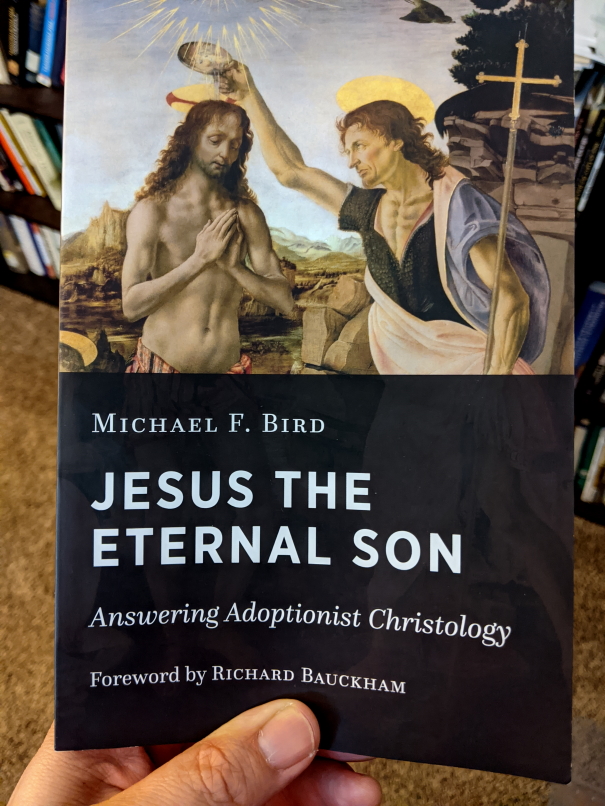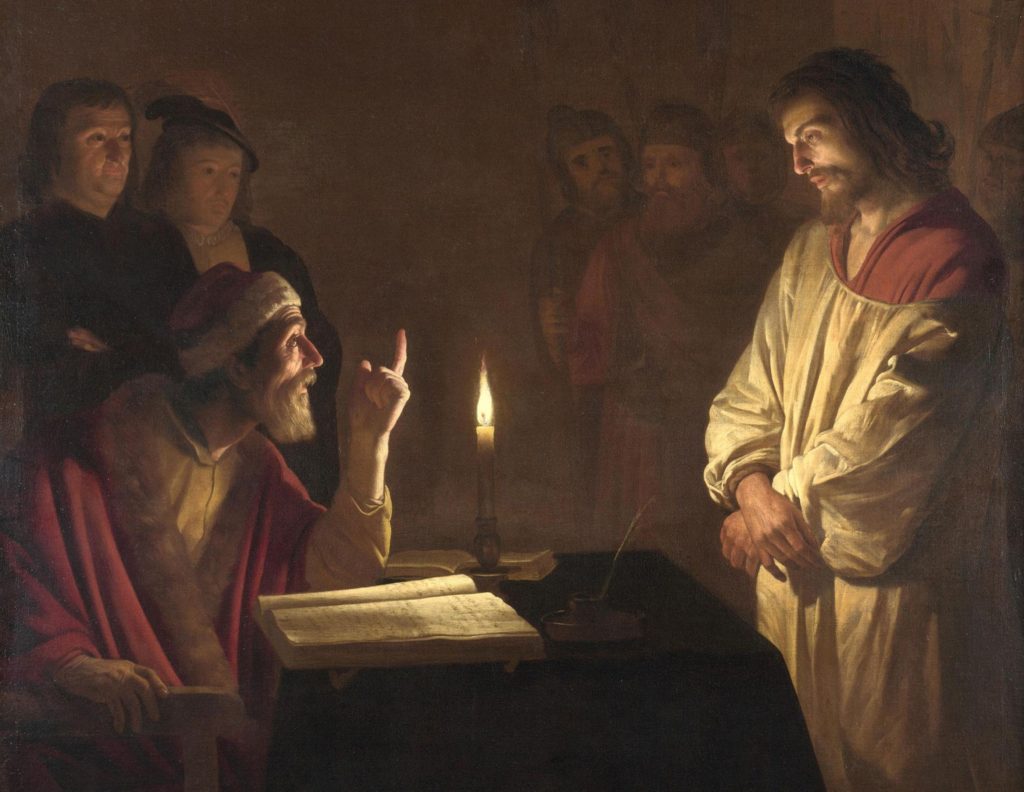Podcast: Play in new window | Download
Subscribe: Spotify | Email | RSS

In this episode I discuss and criticize what I call the “esoteric” reading of Mark defended by Dr. Michael Bird in his book Jesus the Eternal Son: Answering Adoptionist Christology.
Like Dr. Richard Bauckham, he argues that Mark implies in several ways that Jesus “shares the identity” of the one God. He makes his case based on this book’s use of the Greek word kurios (“Lord”), Jesus’s forgiving sins, some “theophanic episodes,” and Jesus’s “divine authority.”
I explain why, to the contrary, none of this shows that Mark’s Jesus is divine in the way that the one God is divine. The argument from “Lord” is sophistical, and the author’s perspective, as with Matthew, is that God has empowered Jesus both to forgive sins, and to heal. Further, some of the “theophanic episodes” straightforwardly present God as someone else, and other of Dr. Bird’s over-readings seem to be cases of what he correctly denounces as “parallelomania.” In sum, Jesus’s “divine” authority in this book, given that he is God’s Christ, is assumed to be derived from God, not underived.
Unlike the previous high christology reading of Mark, Dr. Bird directly tackles Jesus’s explicit claim in this book that he doesn’t know something which the Father knows. But what Dr. Bird says about it may surprise you!
I end by asking whether or not Dr. Bird is willing to admit, like some other “high christology” interpreters of Mark, that his reading is an esoteric one, featuring a clear surface message and also a hidden message.
Links for this episode:
Jesus the Eternal Son: Answering Adoptionist Christology
podcast 306 – Two Readings of Mark – popular or esoteric? – Part 2
podcast 305 – Two Readings of Mark – popular or esoteric? – Part 1
podcast 214 – Has Bauckham clarified his “divine identity” theory? – Part 2
podcast 213 – Has Bauckham clarified his “divine identity” theory? – Part 1
podcast 13 – On Bauckham’s Bargain

podcast 271 – Does your Trinity theory require relative identity?
the apologetics blind-spot on numerical identity
podcast 130 – Ehrman and Bird on How Jesus Became God – Part 3
podcast 129 – Ehrman and Bird on How Jesus Became God – Part 2
podcast 128 – Ehrman and Bird on How Jesus Became God – Part 1
podcast 156 – Dr. J.R. Daniel Kirk on A Man Attested by God – Part 2
podcast 155 – Dr. J.R. Daniel Kirk on A Man Attested by God – Part 1
podcast 225 – Biblical Words for God and for his Son Part 2 – Old “Lord” vs. New “Lord”
podcast 224 – Biblical Words for God and for his Son Part 1 – God and “God” in the Bible
podcast 189 – The unfinished business of the Reformation
Tuggy vs. Date: the book is better
podcast 235 – The Case Against Preexistence
“Only God can forgive sins.” False.
God and his Son: the logic of the New Testament
This week’s thinking music is “Tree Tenants” by Revolution Void.

Thank you Dale, for these three really interesting podcasts. I wonder how Johansson and Bird, after hearing your dissections of their work, would react. Would they stick to their guns, double down on this ‘divine identity’ and ‘hints of this or that’ stuff, or would they, if only in their heart of hearts, concede that they could be barking up the wrong tree?
I suppose it is difficult for academics, when they are trying to make their reputation as a ‘divine identity’ or ‘early high christology’ guy, to admit that they are wrong, and that all those articles and books were a waste of time! It would take a special sort of person, and I don’t know of many academics with such integrity.
You were one, of course, but I guess you did not have too many books of yours to repudiate!
What do you think?
I read Bird’s book some time ago and was not impressed. As Dale has shown, the book abounds in leaps of logic and pretty fanciful over-readings. What particularly stuck with me when I read it was some very poor arguing on pages 103-104 where Bird discusses possible parallels to Markan Christology. As elsewhere in the book (pages 93-94) he confuses (1) Jesus claiming to have authority without explicitly saying (on that occasion) that it was given to him, with (2) Jesus claiming that his authority was *not* given to him (“unmediated”). And in fact, since the episode is the healing of the paralytic, it is plausible that Jesus WAS claiming on that occasion that the authority was given to him, since he referred back to Daniel 7, where the one like a son of man is *given* authority. Then Bird makes much of the fact that Jesus is depicted as seated on God’s throne – “This is not his own little throne, but the same throne from which he exercises judgement” (p.104) – apparently forgetting that on the previous page (!) he has mentioned that 1 Enoch portrays the non-deity son of man as seated on God’s throne.
Comments are closed.